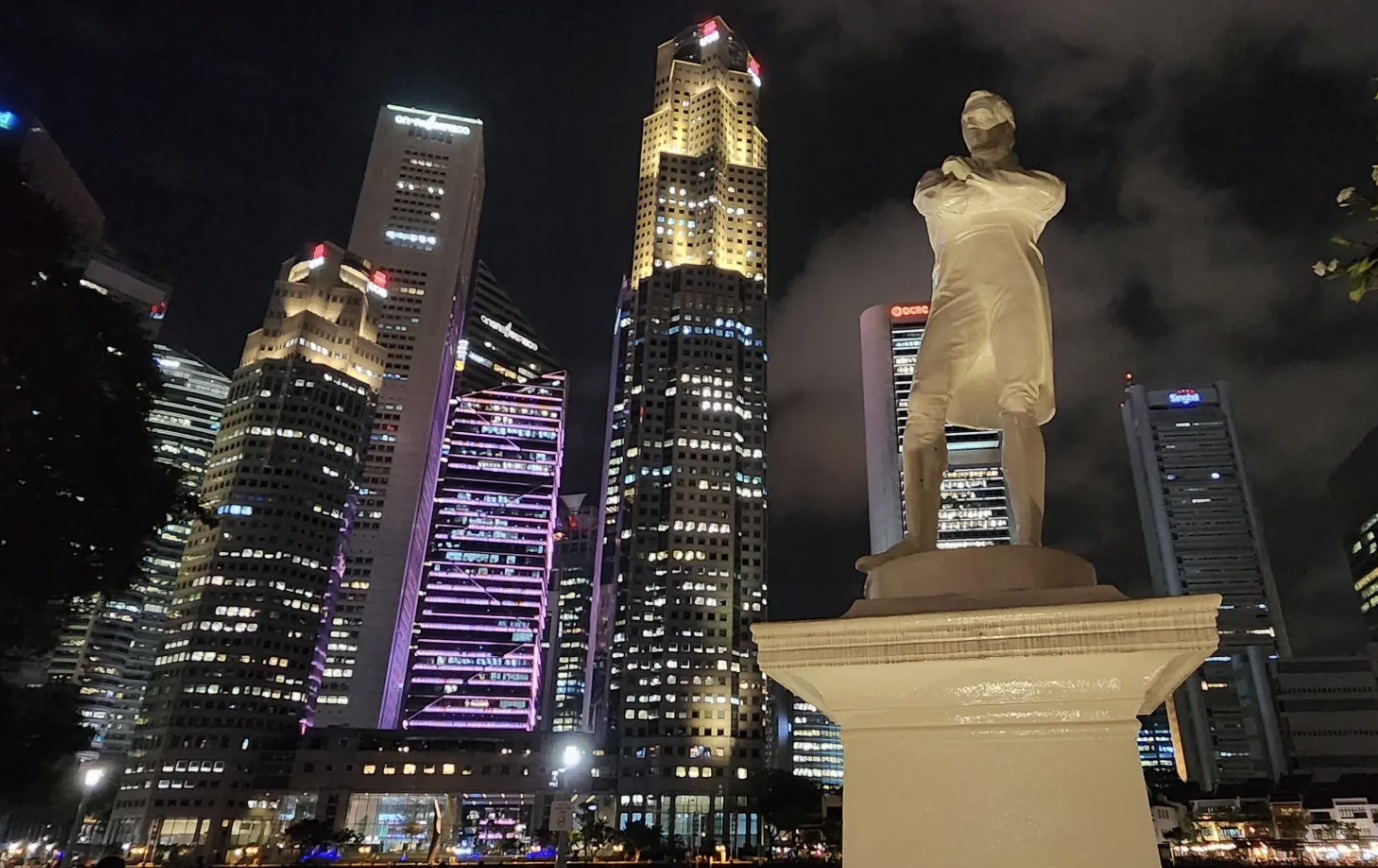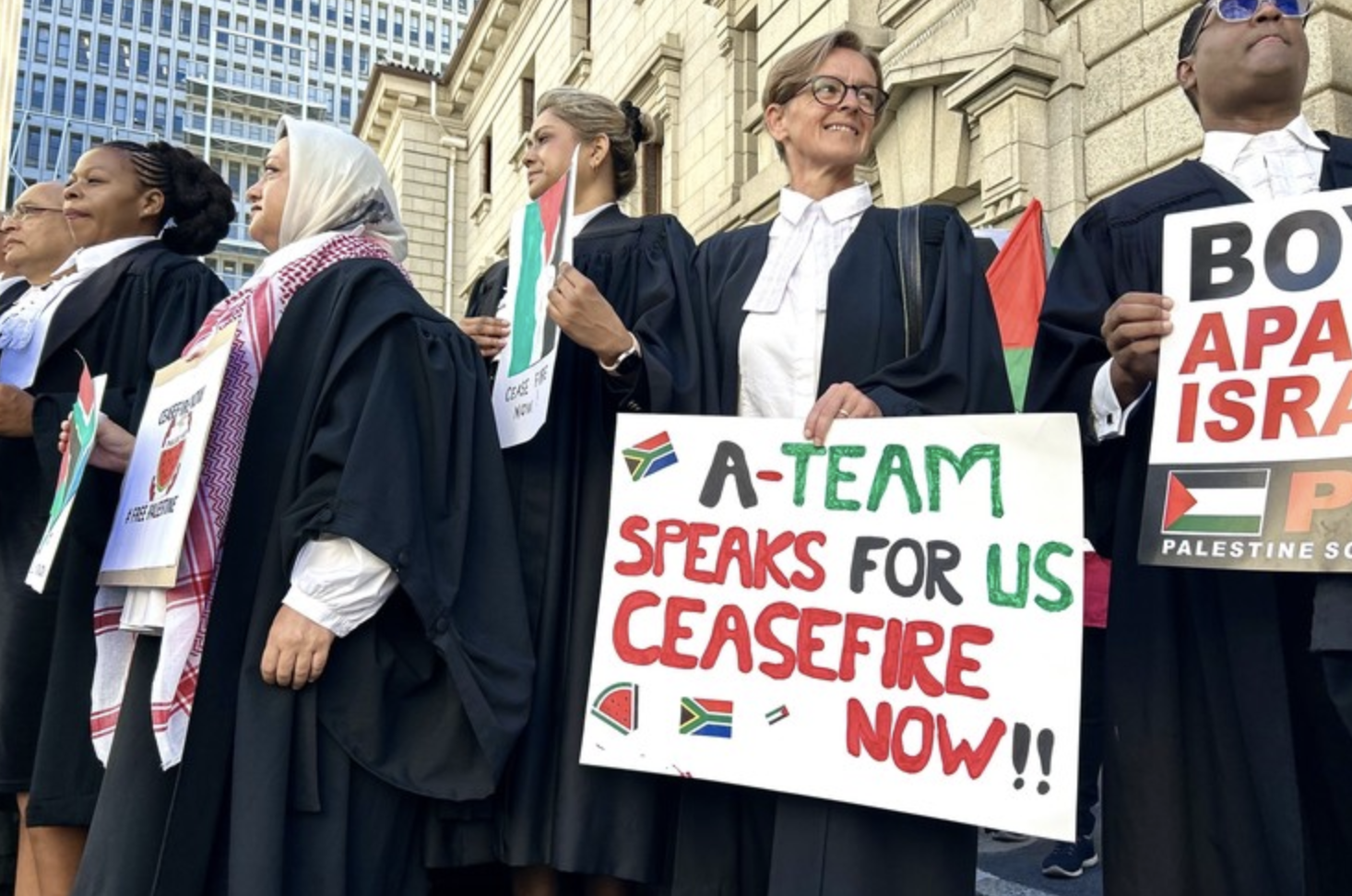News
Lessons from Singapore — if we know how to develop faster, why don’t we do it?
Dozens of African delegations visit Singapore every year to learn from the island’s success in transforming from a (real) per capita GDP of $4,214 to $67,360 since its independence in 1965. During this same period, sub-Saharan Africa’s per capita GDP has gone from $1,259 to $1,623.

Following her first visit to Singapore in March 2017, the then premier of the Western Cape, Helen Zille, found herself in a media storm over her comments on colonialism. She had tweeted that, while colonialism had been an oppressive and evil system, judging from the success of Singapore, not every consequence had been negative. The result was rapidly manufactured outrage as the ANC’s Twitterati created a storm.
So great was the squall that Zille was disciplined by her party for bringing it into disrepute. Despite Zille apologising “unreservedly” for the tweet, the then leader of the Democratic Alliance, Mmusi Maimane, said that the premier had “agreed that it is in the best interests of the party for her to vacate her position on all decision-making structures”.
The effect of the media scrum on this one aspect — Zille’s views on the relative merits and demerits of colonialism — were unhelpful in drawing attention away from the key present issue in Africa of which myriad government study tours to Singapore remind us: If we know what to reform to improve development prospects, why don’t we do it?
The polymarble statue of Sir Thomas Stamford Raffles was erected on the Singapore quayside in 1972, on the spot where the man considered the founder of modern Singapore is believed to have landed 150 years earlier. The white statue is a copy of the original bronze figure now just a short stroll away in front of the Victoria Memorial Hall. Sculpted by the renowned English artist and poet Thomas Woolner, the bronze edition was unveiled on Jubilee Day, 27 June 1887.
Lessons for Africa
Dozens of African delegations visit Singapore every year to learn from the island’s success in transforming from a (real) per capita GDP of $4,214 to $67,360 since its independence in 1965. During this time, sub-Saharan Africa’s per capita GDP has gone from $1,259 to $1,623.
Whereas Singapore’s share of global per capita GDP has increased from slightly below the global norm of $4,257 in 1965 to now being six times greater than the 2022 average of $11,315, sub-Saharan Africa’s share has halved to just 14% in the intervening six decades.
Singapore’s GDP is, at $380-billion, now slightly more than South Africa’s, though its population is ten times smaller. In 1965, South Africans were, on average, 10% wealthier than Singaporeans.
It’s not as if the costs of the failure to follow a similar reformist path to Singapore go unnoticed by African leadership.
Raila Odinga was the Prime Minister of Kenya from 2009 to 2013. Before and during that time he headed Kenyan delegations to study Singapore’s success.
“It seems extraordinary today that in the 1960s Singapore looked to Africa for insight on growing its economy,” he recalls. “In 1968, a team of Singaporeans came to Kenya to learn our lessons, since we were then a more developed country than they were. Four decades later I led a study trip to Singapore with six ministers. That was the latest in many trips taken by the Kenyan government to the island, about which no report was ever written, and where the participants kept everything to themselves.
“This, I am sure, is the depressing experience of many an African government official and politician. Lots of studies, followed by much less in the way of action.”
Tough decisions and sound leadership
There are many good lessons to be extracted from Singapore, not least embracing the past, but also the willingness to make tough decisions and maintain attention to detail, which require a combination of sound leadership and a highly capable, meritocratic civil service.
Corruption is severely punished, contrary to most African and other Asian political economies, and fundamentally, (economic) growth matters. If, for example, Africa had increased its wealth at the rate of Vietnam, which had a difficult passage to independence, it would be touching the global average instead of being seven times less.
And if Africa had grown at the pace of Singapore, Africans would be twice as wealthy as the global average.
If there is one key lesson to be taken out of Singapore, it’s about pragmatism in running a government.
It’s not about the need for more time, since most African countries have been independent for longer than Singapore. Lee Kuan Yew might have been prime minister for three decades, but his duration was long because delivery was impressive. If the latter had been poor, it is doubtful LKY would have lasted, no matter his authoritarian tendencies.
Geography and the neighbourhood have helped, but it was not so for a long time — there was a time when the region was defined by wars, from Korea to Vietnam. China’s poor performance was a blight for the first 40 years of the existence of the People’s Republic.
It’s also not because Singapore managed to stay out of the clutches of nasty multinationals: on the contrary, Singapore has actively gone out to attract these businesses into the country, given their role in introducing skills, technology, finance and, crucially, knowledge and practice of markets. The number of multinationals has been a key and longstanding metric of success.
It’s not because of the relative absence, either, of neo-colonialism, however that may be defined, since the US and the West have maintained a steady presence since 1945. Again, the role of Western companies and countries has been actively encouraged, on Singapore’s terms.
Why, when we know how Singapore among others did it and where the island came from, do African (and other) leaders choose to (largely) ignore its lesson of the need for leadership at every level, including the need for a highly professional civil service?
Several reasons stand out.
For one, as Barry Desker has suggested, “Africans may relativise Singapore’s experience and over-emphasise the situational and contextual (cultural, historical, environmental, etc) differences. Those who visit Singapore conclude that it is a small place, easy to govern!” says the veteran Singaporean civil servant.
Africans may not feel the same existential threat that Singapore did in 1965 on the breakup of the Malaya Federation, believing that even without reforms, their relative size and natural resources allow them to get away without making tough, far-reaching reforms. As such, their preferred ignorance is a defensive reflex to exonerate their own inability to adopt similar strategies.
Local role models
Yet such an existentialism is rising as the business-as-usual premise of most African leaders in the face of a galloping demography rings hollow. It’s one thing to kick the reform can down the road with a billion mouths to feed in Africa, another with 2.5 billion, the projected population in 2050. The rash of instability currently in the Sahel offers a window into the dystopian consequences of inaction.
If the premium of development is on what Olusegun Obasanjo, the former Nigerian head of state (full disclosure: we wrote a book together on Asia and he is The Brenthurst Foundation’s emeritus chair) has identified as “transformational, focused, courageous and determined” leadership, the question is, how to encourage it down this path?

Ironically, the answer lies in having local role models of the sort that Singapore provides for others in the region, just as Japan provided earlier for the Asian Tigers’ reforms.
This aspect is personified just 100m down from the Raffles statue along the Singapore River in the bust of Deng Xiansheng, the original name of Deng Xiaoping, considered the father of modern China.
Unveiled by Lee Kuan Yew and then Chinese Vice-President Xi Jinping in 2010 in celebration of the 20th anniversary of diplomatic relations between Singapore and China, the memorial features a quote by Deng: “Development is of overriding importance” in laying out Deng’s accomplishments and detailing his early life, political activities, his (only) visit to Singapore in November 1978, and his role in Singapore-China relations.
Deng was the first senior Chinese leader to visit Singapore. His 1978 visit spurred subsequent interactions in various fields between the two countries. The same year he initiated his dual policies of economic reform and openness. Following his famous “southern tour” in 1992 when he referred to Singapore’s good social order and management, many Chinese officials were sent to the island for training, illustrating that even the largest, most complex societies could, with a necessary dollop of political direction, adopt lessons from the smallest.
Deng is remembered as one of the great modern statesmen, the architect of China’s economic transformation through reform. Despite remaining a staunch communist, his reforms were notable for their pragmatism — of socialism with Chinese characteristics — best captured in his words: “It does not matter if it is a yellow cat or a black cat as long as it catches mice.” He was proved right and with the unleashing of the power of the market to allocate resources, China engineered the greatest economic turnaround in modern times.
Heroes of development are important. While Raffles’ legacy remains complex and, in some quarters, controversial, his role reminds us of the necessity to take the best out of the past to make progress in the future.
His arms folded, his back to a spectacular skyscraper skyline, Stamford Raffles would be stunned at Singapore’s transformation from a malaria-ridden swamp with a 150-strong population to a six-million-person $400-billion economy.
Today, his gaze ironically focuses on the Asian Civilisations Museum, a reminder that the island-state’s history did not start, and will not end, with his role. Rather, Raffles is mostly accepted and celebrated among Singaporeans, given the paucity of unifying and historical figures in that multicultural society.
From a South African perspective, the question is thus less about the past and the extent to which it is allowed to imprison views on the future, than about the present state of reforms.
One wonders if a big church like the ANC, whose leading members have a narrow but deeply entrenched interest to preserve the status quo, has the capacity either to self-correct and transform itself or to emphasise unifying figures when there is more seemingly to be gained in the short term from identity politics and division, even if development is the purpose of political power and of overriding importance.
This article originally appeared on the Daily Maverick
Photo: Greg Mills


